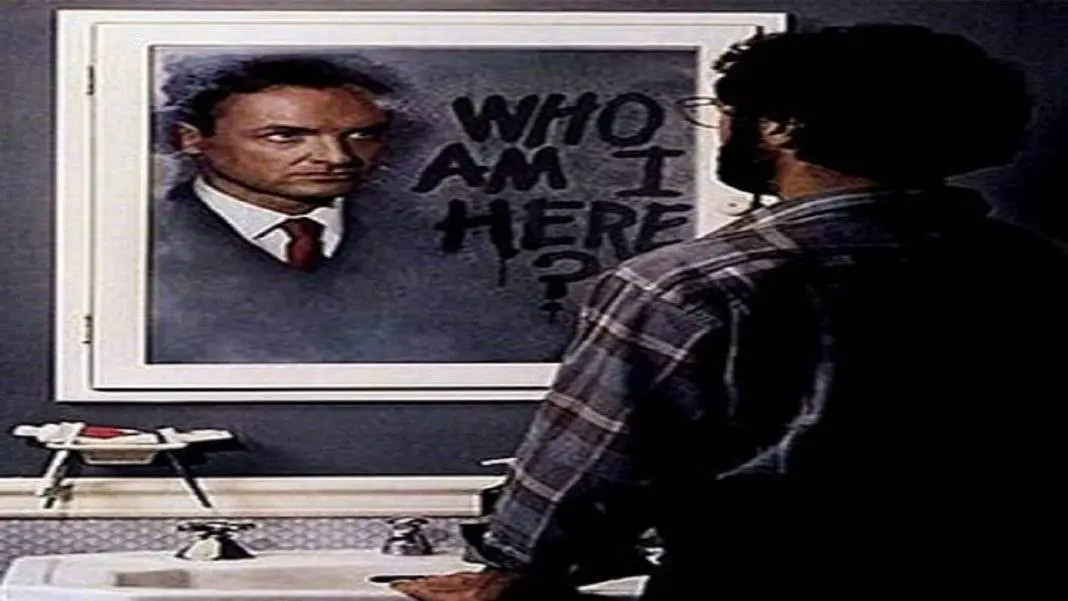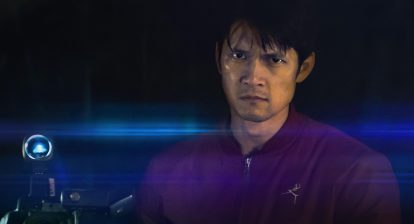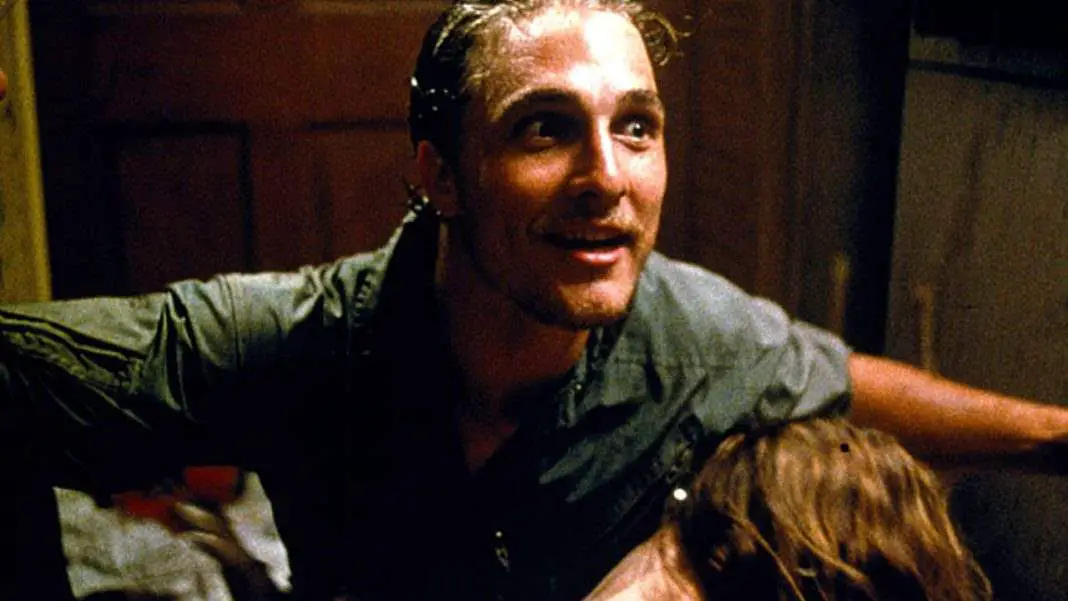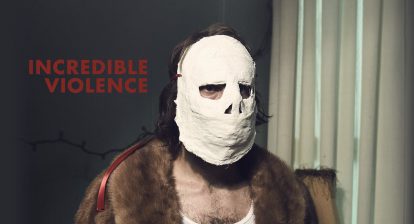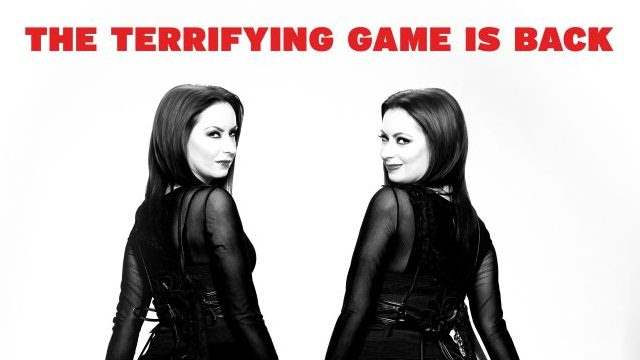Welcome to Back to the ’80s. This recurring feature aims to take a look at the good, the bad, and the ugly from horror’s most beloved decade. Regardless of which category a particular film falls under, this segment will spotlight films that horror fans can appreciate for one reason or another. We will look at how some of these flicks have stood the test of time and others have not aged quite so well. Regardless of what they look like today, these efforts from the 1980s laid the groundwork for the horror genre as we know it today.
A 1987 film examining the psychological side of horror, The Stepfather follows Jerry Blake and his misguided pursuit of the American Dream. Played with chilling perfection by Terry O’Quinn, Jerry wants the perfect family and he is willing to do anything to have it. If one becomes a part of Jerry’s family, then he or she must accept that father knows best. One does not want to disappoint Jerry. As soon as any cracks of imperfection begin to show, he believes it time to move on. When he has decided to move on, then his family better start to run for their lives.
Director Joseph Ruben begins with an intriguing opening followed by brutal images. Ruben introduces the audience to Jerry Blake under his current alias of Henry Morrison. As he alters his appearance, Henry becomes Jerry with a salacious and maniacal look in his eyes. He is washing off the blood of his now failed family. Jerry leaves the gory mess behind and then neatly puts himself together. The story jumps ahead a year as the audience is introduced to his new family. The new family consists of widowed Susan (Shelley Hack) and her daughter, Stephanie (Jill Schoelen). The tone becomes ominous as the audience realizes that Stephanie does not care for her stepfather, and we already know one does not want to disappoint Jerry.

The film analyzes the pressure put upon one to achieve the American Dream. There is a deconstruction of a patriarchal society and how, perhaps, father does not always know best. Stephanie and Susan are bereft from the loss of Stephanie’s biological father. There is an assumption made in society that the only way to find stability and happiness again would be to replace him with another man. Jerry chooses women with a certain vulnerability to find a place within her broken family unit. Therefore, it appears Jerry and Susan are assimilating to the roles carved out for them in a patriarchal society. It is Stephanie that realizes the preconceived setup is nonsense.
Stephanie asserts she and Susan were fine before Jerry came along. Her viewpoints single her out as a non-conformist to the rules of society. As a result, this causes her to be labeled a problem in the system and leads to her having to see a counselor (Charles Lanyer). Meanwhile, Jerry has been consumed completely by the ideologies of a patriarchal society as well as influences from perfect television families. Stephanie even compares Jerry to Ward Cleaver. In Jerry’s psychosis, he can never be the problem of why the family does not work. He believes in a specific ideology of what the man’s role is in his family. His belief is so complete that if anyone challenges his ideas they must be the problem. Stephanie does challenge these ideologies. While everyone assumes that she is the problem, it is revealed that she is actually the one who sees most clearly.
The Stepfather features sufficient supporting performances. Stephanie’s counselor allows for a slight chipping away at Jerry’s persona. There is a subplot involving Jerry’s former brother-in-law (Stephen Shellen) helping to bridge the past and present. The core focus and main attraction are the performances of the Blake-Maine family. Shelley Hack does a suitable job anchoring the performances of Terry O’Quinn and Jill Schoelen. It is the dynamic of these two lead characters that makes this film work. Ruben’s direction is fine and he delivers on the scares. However, it is the dance between stepfather and stepdaughter that makes this 1980’s horror film stand above most others of the time.

Terry O’Quinn delivers a masterful, layered performance. Each layer reveals something more horrific until everything is peeled away in a terrifying conclusion. He demonstrates all that can go wrong within the conventions of a patriarchal society. While O’Quinn is careful to make sure the audience never feels pity for Jerry, he ensures that one can understand the logic behind the character’s reasoning. He has goals to be a productive member of society and to provide for his family. However, the performance illustrates the problematic element of specific ideologies. This is especially true in terms of pressures put on a person to succeed. In attempting to achieve these goals, a thin line is drawn between “letting off a little steam” and violence. Contemporary domestic abuse statistics suggest the truth of how easily these ideals can become skewed. O’Quinn develops Jerry Blake as a lesson and a warning.
Jill Schoelen shines as Stephanie. Her performance in The Stepfather paved the way to her becoming a Scream Queen of the late ‘80s/early ‘90s in films such as Cutting Class, Popcorn, and When a Stranger Calls Back. Schoelen crafts Stephanie as smart, observant, and tenacious. There is an element of playfulness that counters her ability to stand as strong and independent. Schoelen is a natural actress. As far as acting in the 1980s goes, few can compare with Schoelen’s sincere performance. The audience can easily believe that they are watching a teenager frustrated with all that life has thrown at her. She is angry that her father has died and resents her mother for marrying this man. She is genuine in the resistance of every action her stepfather takes to grow closer to her.
These qualities from Schoelen are incredibly important as her character embodies one of strength when facing adversity. Stephanie is fighting the problematic elements of a patriarchal society. She approaches life from a different viewpoint. Stephanie believes in the importance of family every bit as much as Jerry. The difference is that she does not seek family unification just for the sake of normality. This leads to her rejection of anything that appears false and instead seeks to scratch beneath the surface to find the truth. Ultimately, Schoelen’s Stephanie is a character able to overcome obstacles while becoming a source of strength for her mother.
Despite all the underlying academic issues examined within the film, one can watch The Stepfather in a straightforward way as a horror film and find much to enjoy. There is suspense and gore to appease all appetites. While managing to scare the audience, performances by O’Quinn and Schoelen elevate the film above most run-of-the-mill 1980s slashers. An interesting deconstruction of the American Dream and the deadly stress that comes along with trying to achieve it, this flick holds up well. Horror fans should not miss this one.

